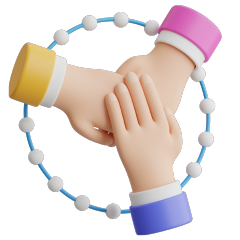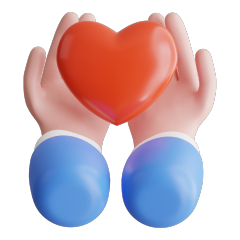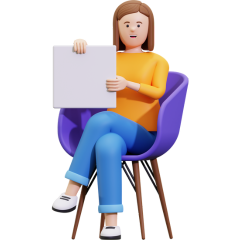Understanding domestic and family violence in Australia

Domestic and family violence is any act of violence occurring in domestic settings between family members or carers. This can include physical, sexual, emotional, psychological and financial abuse.
Domestic and family violence is any act of violence occurring in domestic settings between family members or carers. This can include physical, sexual, emotional, psychological and financial abuse.
- 1 in 5 Australians have experienced violence, emotional abuse or economic abuse by a partner (ABS)
- 1 in 2 women who had experienced physical and/or sexual violence from a current partner did not seek advice or support about the violence (AIHW)
- 2 in 3 First Nations people aged 15 who had experienced physical harm in the last 12 months reported the perpetrator was an intimate partner or family member (AIHW)
- Police respond to over 140, 000 domestic and family violence calls every year. This equates to 1 call every 4 minutes (DVNSW)
Domestic violence does not discriminate; it affects people of all ages, genders, socioeconomic backgrounds, and cultures. However, women and children are overwhelmingly the victims of domestic and family violence, and statistically the perpetrators of domestic and family violence are overwhelmingly male. The impacts of domestic violence are far-reaching. It affects not only the victim, but family, friends, coworkers, the community and generations to come.
What does domestic and family violence look like?
Not all domestic and family violence is physical. It is repeated patterns of abuse that can take many forms. Domestic violence can look like, but is not restricted to, forms of:
- Physical violence
- Sexual violence
- Psychological and emotional violence
- Financial coercion
- Social restriction
- Legal control
- Reproductive violence
- Neglect
- Stalking
If any of these sound familiar, please know no one has the right to hurt you or make you live in fear.
What are some of the impacts of domestic and family violence?
Besides the ongoing and immediate risks to victims and families of domestic and family violence, there are long-lasting impacts on survivor’s health and wellbeing. Family violence disadvantages a person’s sense of self, their income, employment, education, housing security and general participation in life (Safe and Equal). In addition to the degradation of the victim’s agency and self-worth, survivors of domestic violence can experience long-term:
- Depression and anxiety
- Post-Traumatic Stress Disorder (PTSD)
- Physical symptoms, eating and sleeping disturbances
- Low self-esteem
- Substance abuse
- Difficulty forming positive relationships with others and engaging in social life
Children affected by family violence also face developmental issues, and are more likely to require additional support in meeting milestones, regulating their emotions and behaviours, engaging in education and creating positive relationships with others.
What should you do if you suspect someone you know is experiencing domestic and family violence?
Believing someone you know may be being hurt is hard. You may feel confused and unsure how to approach them with compassion and sensitivity. But there are simple ways you can help make a big difference, and it all starts with a conversation. The way you talk and listen to a victim of domestic violence is important. When someone is experiencing violence, they can often feel a sense of helplessness, trapped and a loss of control. Listen without judgement or interruptions and be conscious not to force your opinion on them; it is important that the victim feels supported to make their own choices, when they’re ready.

It is important to note that the violence and abuse experienced by victims is never their fault. There are many complex reasons as to why a victim may not leave, but often it is a lack of choice, feelings of isolation from family and friends, shame, access to financial resources or the result of complex trauma. The victim may also not want to leave; they just want the abuse to stop.
Here’s some practical ways you can help someone experiencing domestic and family violence.
- Believe them and take their fears seriously, regardless of your personal opinions on the matter.
- Listen without judgement.
- Remember the victim is never to blame. Violence is always the choice of the perpetrator.
- Respect that they may not be ready to leave. Don’t try to force them to do what you think is best.
- Offer to help in practical ways, such as transport, appointments, child-minding, or a place to escape to when needed.
It’s important to note that exiting a relationship is an incredibly unsafe time for a victim. As the abuser senses that they’re losing power, they will often act in dangerous ways to regain control over their victim.
What should I do if I am experiencing domestic and family violence?
- If you are in immediate danger, call the police on 000
For less immediate support, here are some options you can explore:
- Speak to a trusted family member or friend.
- Use our Live Chat with a Counsellor service to message a qualified counsellor in real-time. This service is available from 9am – 5pm on weekdays. All conversations are entirely confidential.
- For confidential conversations outside of these hours, 1800 RESPECT is available 24/7 for victims of abuse. You can call 1800RESPECT on 1800 737 732 or text 0458 737 732.
- First Nations people can also speak to a 13YARN Crisis Supporter, call 13 92 76. This service is available 27/7, 7 days a week.
- For long-term support at all stages of your journey, schedule regular therapy sessions on the Leora app. All conversations are entirely confidential.

Valuable resources 🙌
- Research local women’s shelters in your area, there are so many incredible organisations built to help you leave a violent situation.
- Our Watch is an advocacy organisation set up to drive change in the culture, behaviours and power imbalances that lead to family and domestic violence.
- Australia’s National Research Organisation for Women’s Safety is a not-for-profit independent national research organisation designed to educate and spread awareness for the reduction of violence against women.
- Love: the good, the bad and the ugly is a website that provides advice, tips and stories on how relationships should feel.
- MATE: Empowering Action Through Empowerment, is an education and intervention program teaching us all to be leaders in the prevention of violence and problematic behaviour.
- No To Violence is the peak body for organisations and individuals working with men to end family violence in Victoria and New South Wales. It includes the Men’s Referral Service.
- Switchboard is a resource hub for LGBTIQA+ identifying people and those who have questions or concerns about LGBTIQA+ issues. It also assists people who may not be LGBTIQA+ but who want to talk about someone else they care about.
- Women with Disabilities Australia is the peak organisation for women with all types of disabilities in Australia. WWDA is run by women with disabilities, for women with disabilities.
Daisy is an app developed by 1800 RESPECT that connects women around Australia to services providing support for the impacts of sexual assault and family and domestic violence. Family members and friends can also use the app to gather information and support women’s decision making.
Before downloading this app, please consider your safety. If a device is not private, it may not be safe to download or share.





